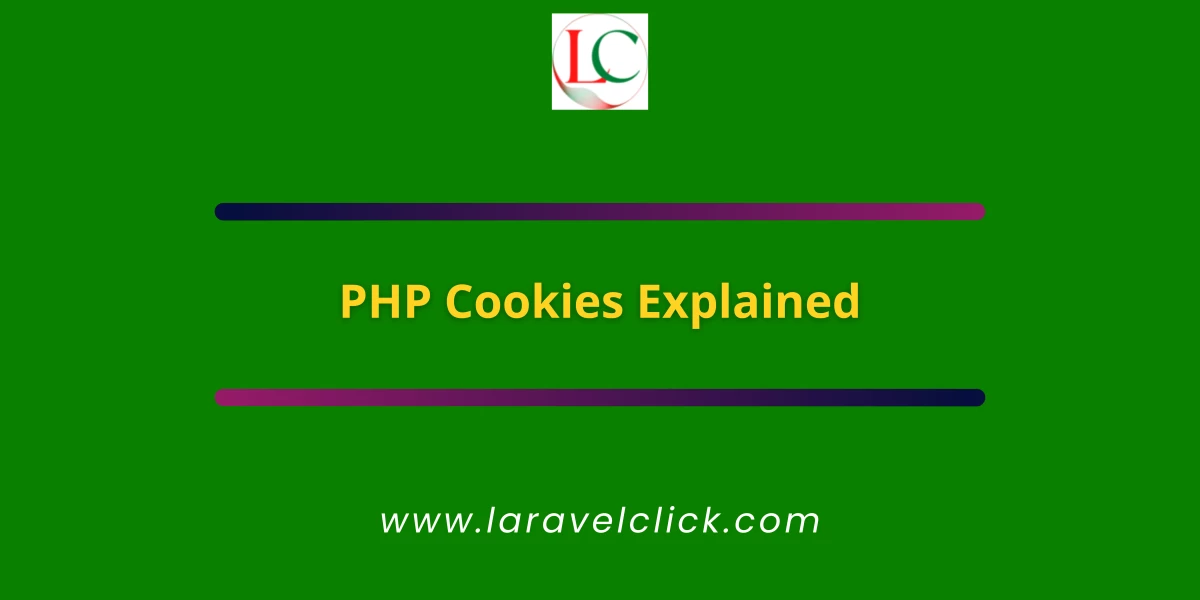PHP Sessions Explained
Last Updated: 02 Jan, 2024What is a PHP Session?
A session is a medium to keep visitor’s information (in variables) on the server to be used across subsequent pages. When a visitor access your web site he/she is assigned a unique id called session id. PHP session allows you to store data between requests in the $_SESSION superglobal array. Unlike a cookie, the visitor's information is not stored on the user’s computer.
Why session is important?
Let's understand it with an example. When we work with any application, we take some actions. We open the application, do some changes in it, and then finally we close it. This is very much similar to Session. The computer knows who we are and when we started the application and when we finished.
But internet doesn't work in the same fashion. There is a problem on the internet: HTTP is stateless and doesn't maintain state. Because of this, the web server does not know who we are or what we do. This problem can be short out by using session variables. Session variables can store user's information an make available across multiple pages unless the session is timeout. By default, session variables available until the user closes the browser.
How to start a PHP Session?
To start a new session, you have to just call the PHP session_start() function. With the help of session_start() function, you can create a new session and generate a unique session ID for the user. You can use below PHP code example to starts a new session.
<?php
// Start the session
session_start();
Note: Please not that, session_start() function must be the very first line in your document, before you use any HTML tags.
How to store data in PHP Session?
You can store your data into the session in the form of key-value pairs with the help of PHP superglobal array $_SESSION[]. These data will be available during the session lifetime. Once session is timeout, these data will be lost. You can use below PHP code example to store data into the session.
<?php
// Start the session
session_start();
// Set session variables
$_SESSION["name"] = "w3techpoint.com";
$_SESSION["type"] = "web technologies learning resources";
How to get data from PHP Session?
You can retrieve your data from the session by passing session variable key to PHP superglobal array $_SESSION[]. You can use below PHP code example to retrieve data from the session.
<?php
// Start the session
session_start();
// Get session variables value
echo "Name is: " . $_SESSION["name"];
echo "Type is: " . $_SESSION["type"];
// Get all the session variables values
print_r($_SESSION);
How to modify a PHP Session variable?
To modify a session variable value, just overwrite it:
<?php
session_start();
$_SESSION['name'] = 'https://www.w3techpoint.com';
print_r($_SESSION);
How to remove a Session variable and how to destroy a PHP Session?
<?php
session_start();
// To remove a session variables, use session_unset('variable_name'):
session_unset('name');
// To remove all global session variables, use session_unset():
session_unset();
// To destroy the whole session, use session_destroy():
session_destroy();
Some important facts:
- PHP session stores user data on the server and not on user's computer.
- The session_start() function must be the very first line in your document, before you use any HTML tags.
- Each and every PHP session is timeout after certain time period.
- PHP session timeout is measured in seconds.
- Timeout value makes sure that how long a session will remain alive.
- When user does not do any activity within this time period, session will be timeout.
- This time duration can be adjusted by specifying session.gc_maxlifetime variable value.
- The session.gc_maxlifetime variable in available in php.ini PHP configuration file.
HAPPY LEARNING:)
Recommended Posts
PHP Magic Methods Explained
Magic Methods are special types of methods in PHP that allows you to perform certain special actions. These methods start with a double underscore (__).
PHP OOP Traits Explained
Traits in PHP, are a medium of implementing code reuse and allow us to reuse sets of functions freely in several independent classes.

PHP Cookies Explained
In this post you will be gaining valuable insights about the PHP Cookies and it's working functionalities.